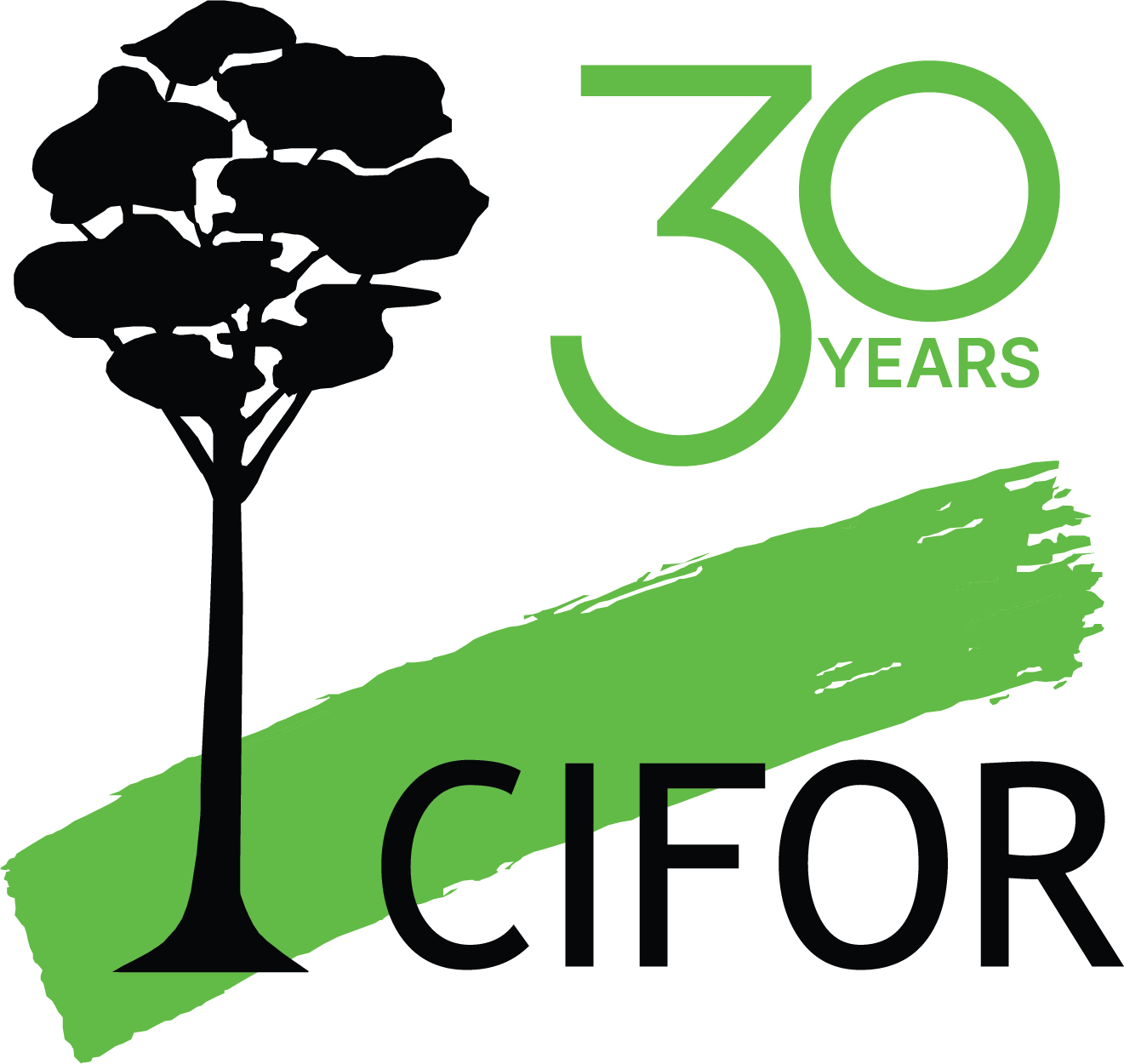The GCS REDD+ project builds on 26 years of CIFOR efforts to understand the causes of deforestation and forest degradation as well as to elaborate what can be done to reverse those trends in tropical countries.
The first phase of CIFOR’s REDD+ research focused on overall design issues and building strong research-based knowledge.
The second phase focused on analyzing nascent and evolving policy processes and the actions of early starters in developing REDD+ policies and measures to inform and facilitate transformational change.
The third phase focused on the assessment of policy design and actual impacts of REDD+ policies and measures as a basis to achieving results in the broader context of landscape management, livelihood objectives and equity. considerations.
This is the fourth phase, which focuses on strengthening Knowledge for action to protect tropical forests and enhance rights
CIFOR will continue working with research partners and stakeholders so REDD+ policy makers and practitioner communities have access to and use the information, analysis and tools needed to design and implement REDD+. CIFOR will also support enabling conditions and assessments as to what degree REDD+ has delivered carbon-effective, cost-efficient and equitable carbon and non-carbon benefits.
The project has four Work Packages plus a communications and outreach work package, as illustrated in Figure 1 and Figure 2.
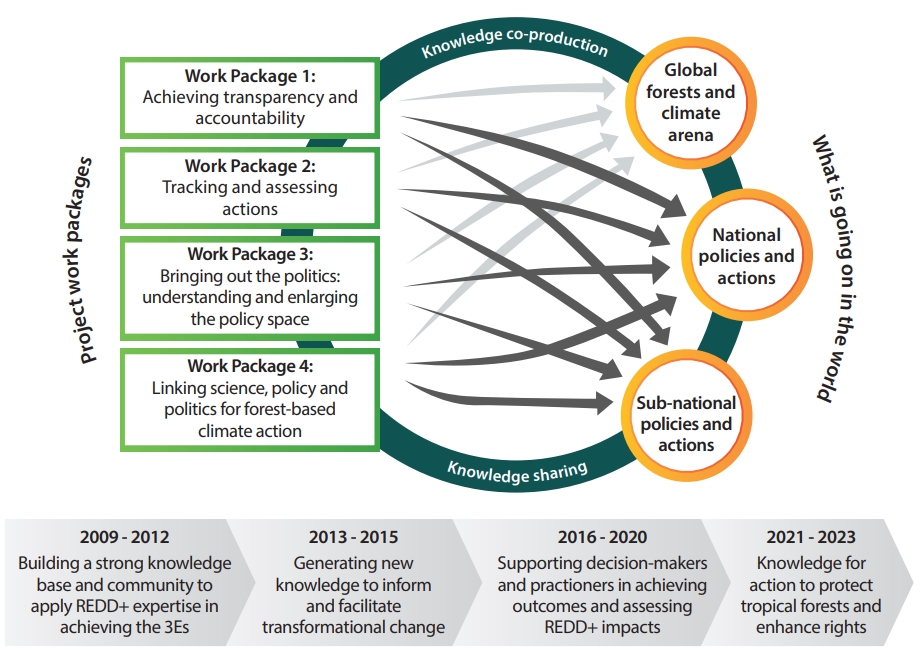
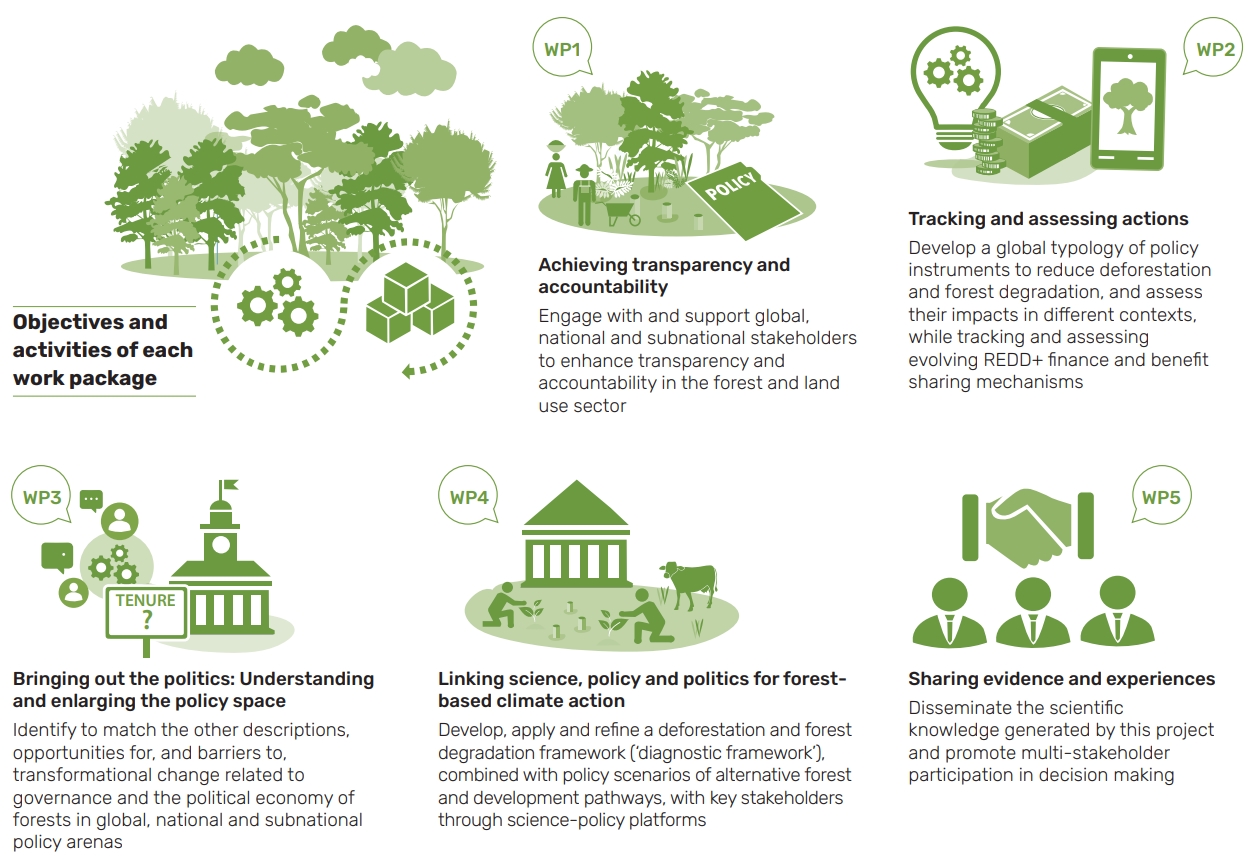
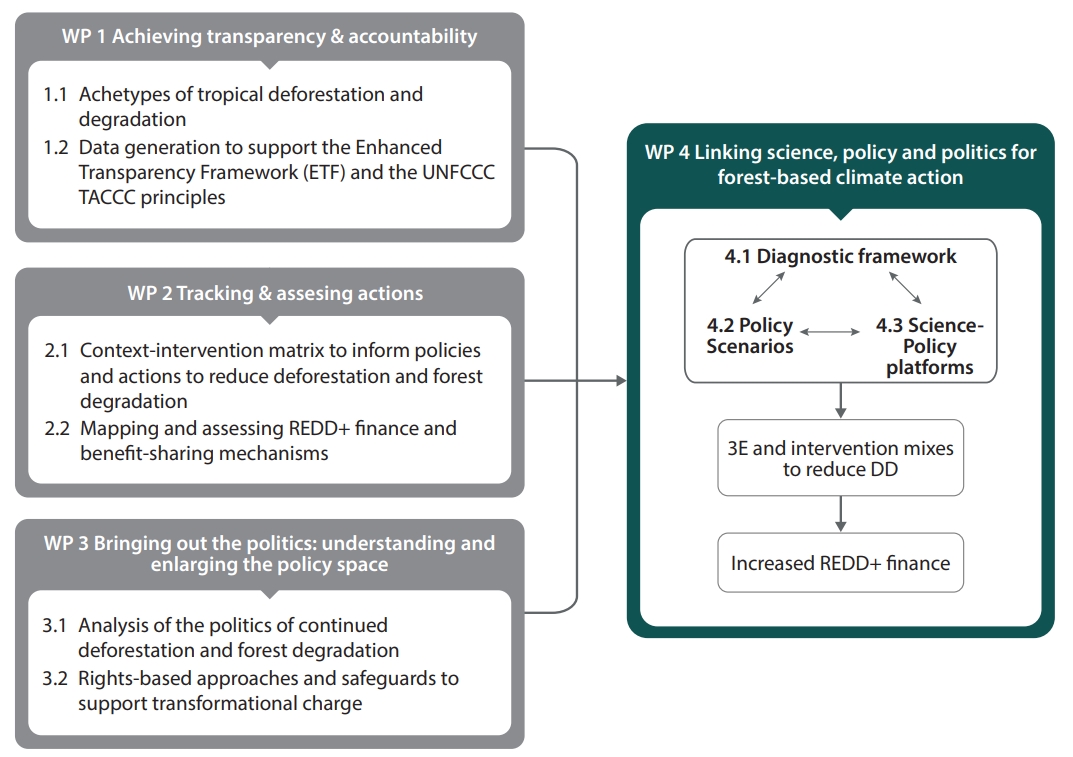
Where we work
We are carrying out research in Peru, Brazil, DRC and Indonesia, along with a global comparative analysis (Map 1).
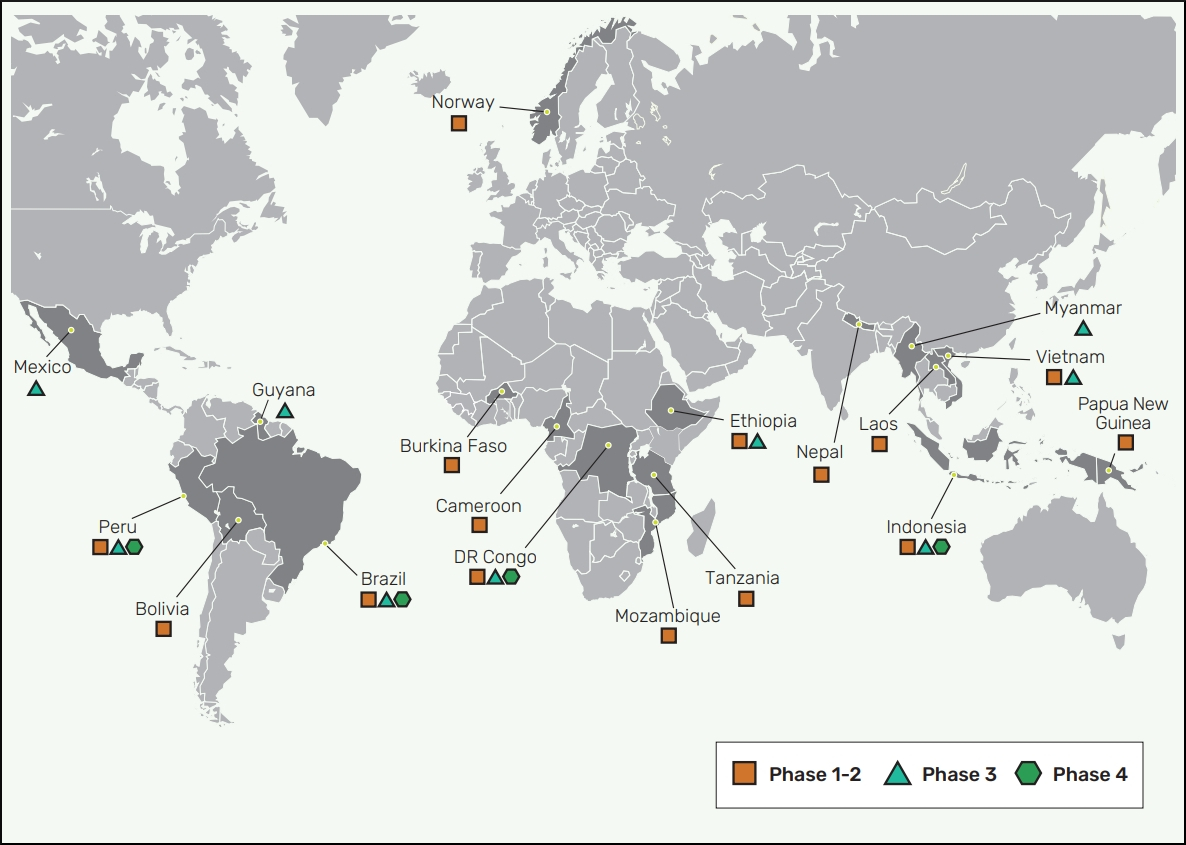
Impact pathway and theory of change
Our policy learning framework (Figure 4) applies to developing countries and the international arena that frames national implementation (e.g. UNFCCC, IPCC). Actors make policy decisions based on the information and technologies they have access to, and the interests and ideas that structure their understanding of the problem and how to solve it. Change is enabled or hindered by institutions at multiple levels of governance, with structural biases on display that work against marginalized groups or preserve inequalities. Shifts in incentives, discourses and power relations are needed to transform the current unsustainable practices into sustainable ones. Identifying how these shifts can be initiated in national policy arenas and multi-stakeholder and international fora is key to understanding how lasting transformational change can be achieved. The right choice of actors is essential.
In this context and given the need to interpret and bridge globally defined climate change and REDD+ policies while targeting effective, efficient and equitable (3E) local actions, our theory of change requires leveraging political economy and governance dynamics at the national and subnational levels.
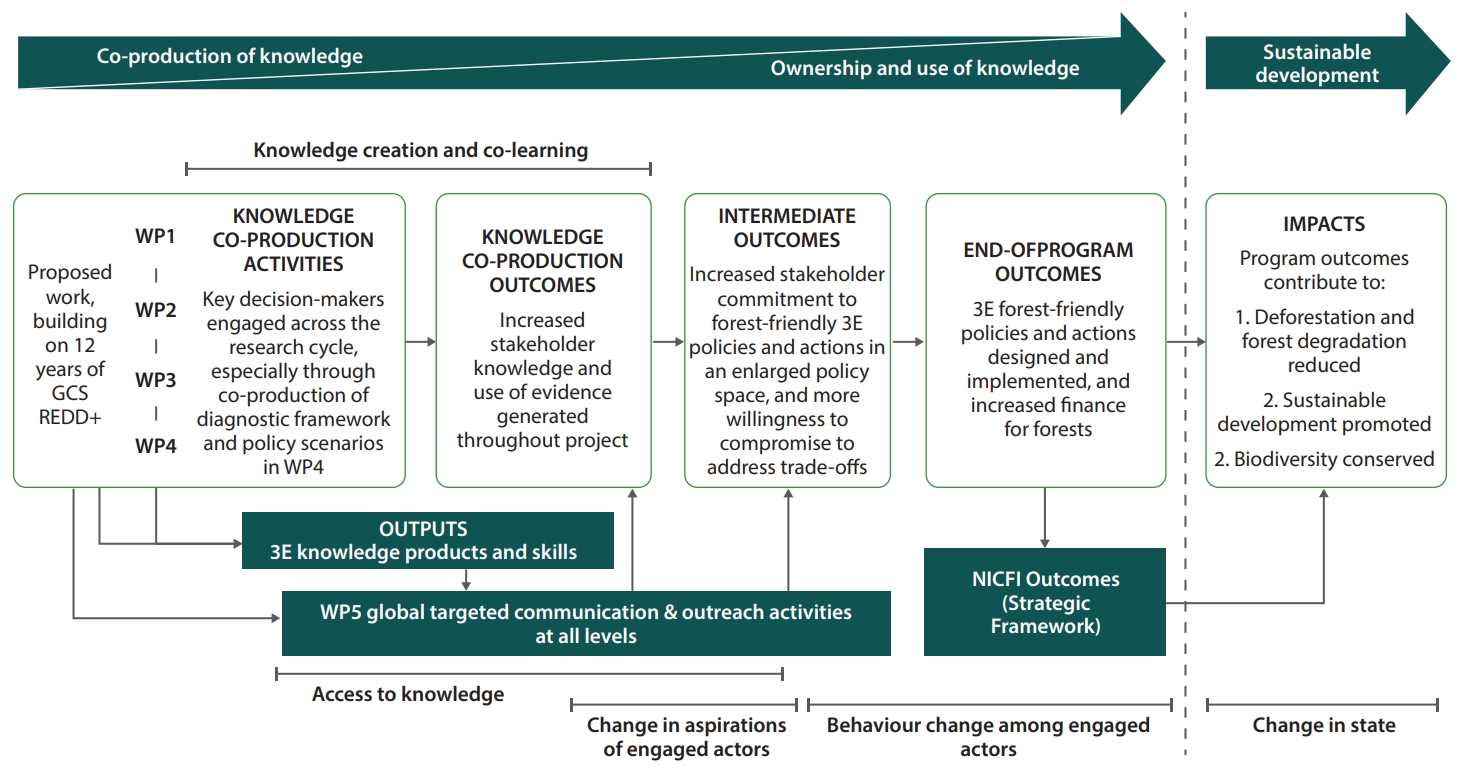
In summary, rather than trying to be ‘predictive and prescriptive’, we see CIFOR’s role as honest brokers of knowledge. We are committed to transdisciplinary biophysical, social and economic research with sound problem analysis that provides evidence-based policy options to target users – options that are based on an identification of their needs.

